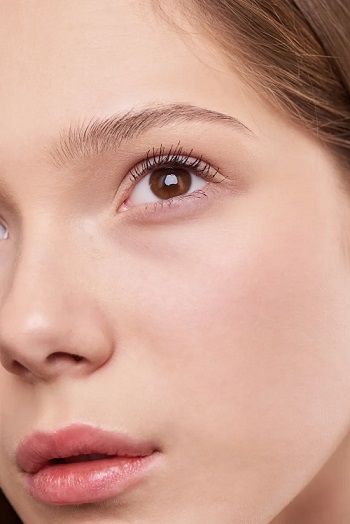As a nutritionist who has spent years studying the intersection of dietary supplements and skin health, I’m constantly amazed by the growing body of research supporting marine collagen’s remarkable benefits for skin vitality. While collagen has become a buzzword in wellness circles, the science behind marine-derived collagen peptides reveals why this particular source stands out as a game-changer for anyone seeking that coveted healthy glow.
What Makes Marine Collagen Special?
Marine collagen, derived primarily from fish skin and scales, represents one of nature’s most bioavailable forms of this essential protein. Unlike its bovine counterparts, marine collagen consists almost exclusively of Type I collagen—the exact type that comprises about 90% of our skin’s structural foundation.
What sets marine collagen apart is its molecular structure. The peptides are significantly smaller than those found in other collagen sources, with a molecular weight that allows for superior absorption and bioavailability. In my practice, I’ve observed that clients often report visible improvements more quickly with marine collagen compared to other forms—a difference that the research supports.
The Science Behind Skin Transformation
Enhanced Hydration and Elasticity
Recent clinical studies have provided compelling evidence for marine collagen’s skin benefits. A 2018 randomized placebo-controlled trial revealed remarkable hydrating effects, with skin hydration levels 7.23-fold higher in the treatment group compared to placebo after just 6 weeks. Even more impressive, these hydrating benefits persisted throughout the 12-week study period (PMC Research on Marine Collagen Anti-Aging Effects).
The mechanism behind these results lies in marine collagen’s rich amino acid profile, particularly its high concentration of hydroxyproline. This amino acid is crucial for collagen synthesis and stability within our skin’s dermal layer, where it helps maintain the structural matrix that gives skin its firmness and bounce.
Wrinkle Reduction and Anti-Aging Properties
Studies on humans have shown that marine collagen can reduce wrinkles, improve skin elasticity, and enhance the overall structure and appearance of skin (Marine Collagen Research – PMC). What’s particularly exciting from a nutritional standpoint is how marine collagen works at the cellular level to combat aging.
The research indicates that marine collagen peptides help minimize oxidative stress—one of the primary drivers of skin aging. By providing the building blocks needed for collagen synthesis while simultaneously reducing cellular damage, marine collagen offers a two-pronged approach to maintaining youthful skin.
Superior Bioavailability Advantage
One of the most significant advantages I discuss with clients is marine collagen’s exceptional bioavailability. Studies have found that marine collagen is absorbed 1.5 times more efficiently than other types of collagen, meaning your body can actually utilize more of what you’re consuming.
This enhanced absorption stems from the smaller peptide size and the amino acid composition that closely mirrors human collagen. For my clients, this translates to faster, more noticeable results—often within 4-6 weeks of consistent supplementation.
Marine vs. Other Collagen Sources: A Nutritionist’s Perspective
Why I Recommend Marine Over Bovine
While bovine collagen has its merits, marine collagen peptides powder offers several distinct advantages for skin health. Marine collagen is predominantly Type I collagen, which is specifically what our skin needs most. Bovine collagen, while containing both Type I and Type III, doesn’t offer the same targeted benefits for skin appearance.
From a safety perspective, marine collagen also presents fewer concerns. Wild-caught fish sources carry significantly lower risks of contamination compared to land animals, and there are no concerns about hormones or antibiotics that might be present in conventionally raised cattle.
Sustainability and Purity
As someone who considers the environmental impact of nutritional recommendations, I appreciate that quality marine collagen is often sourced from fish processing byproducts that would otherwise go to waste. This creates a more sustainable supplement option while ensuring purity and potency.
How to Integrate Marine Collagen Into Your Daily Beauty and Skincare Routine
Morning Ritual: Setting the Foundation
I recommend starting your day with marine collagen to maximize its benefits throughout your active hours. Here’s my preferred morning protocol:
Upon Waking (6:00-7:00 AM):
- Mix 10-15 grams of unflavored marine collagen powder into your morning coffee, tea, or smoothie
- The heat won’t damage the peptides, and the liquid helps with rapid absorption
- Pair with vitamin C-rich foods like berries or citrus to enhance collagen synthesis
Pro tip: Take your marine collagen on an empty stomach when possible. This allows for optimal absorption without competition from other proteins.
Skincare Synergy: Inside-Out Approach
Morning Skincare Routine:
- Apply a vitamin C serum before your moisturizer to support the collagen you’re consuming internally
- Use a hyaluronic acid serum to maximize the hydrating effects of your marine collagen supplementation
- Always finish with broad-spectrum SPF to protect existing collagen from UV damage
Evening Enhancement:
- Consider a second, smaller dose (5-10 grams) of marine collagen in herbal tea before bed
- Apply a retinol product (if tolerated) to stimulate natural collagen production alongside your supplements
- Use a peptide-rich night cream to complement your internal collagen support
Lifestyle Factors for Maximum Results
Dietary Synergy:
- Include vitamin C-rich foods like bell peppers, strawberries, and leafy greens
- Add zinc sources such as pumpkin seeds and shellfish to support collagen cross-linking
- Consume adequate protein to provide additional amino acids for collagen synthesis
Hydration Protocol:
- Drink at least 8-10 glasses of water daily to support the hydrating effects of marine collagen
- Limit alcohol consumption, which can interfere with collagen synthesis
- Consider adding electrolytes to enhance cellular hydration
Choosing Quality Marine Collagen
What to Look For
Not all marine collagen supplements are created equal. Here’s what I advise my clients to prioritize:
Source Quality:
- Look for wild-caught fish sources, preferably from clean waters
- Verify third-party testing for heavy metals and contaminants
- Choose hydrolyzed collagen peptides for optimal absorption
Formulation Factors:
- Seek products with minimal additives and fillers
- Consider those that include vitamin C or other collagen-supporting nutrients
- Ensure the product specifies the molecular weight (ideally around 3,000-5,000 daltons)
Realistic Expectations and Timeline
In my experience, clients typically begin noticing improvements in skin hydration within 2-3 weeks of consistent use. More significant changes in skin texture, elasticity, and fine line appearance generally become apparent after 6-8 weeks of regular supplementation.
The Bottom Line: Your Skin’s Best Investment
Marine collagen represents one of the most scientifically-backed, practical approaches to supporting skin health from within. Its superior bioavailability, targeted Type I collagen content, and proven track record make it an excellent addition to any comprehensive skincare routine.
Remember, consistency is key. Like any nutritional intervention, marine collagen works best when used regularly as part of a holistic approach that includes proper hydration, sun protection, and a nutrient-dense diet. When chosen wisely and used consistently, marine collagen can be your skin’s most powerful ally in maintaining that natural, healthy glow we all desire.
As always, consult with your healthcare provider before beginning any new supplement regimen, especially if you have fish allergies or other health concerns. Your skin—and your future self—will thank you for making this investment in long-term skin health and vitality.




